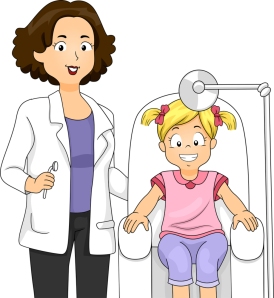TYPES OF PERIODONTAL DISEASES IN CHILDREN
 Chronic gingivitis is common in children. It usually causes gum tissue to swell, turn red and bleed easily. Gingivitis is both preventable and treatable with a regular routine of brushing, flossing and professional dental care. However, left untreated, it can eventually advance to more serious forms of periodontal disease.
Chronic gingivitis is common in children. It usually causes gum tissue to swell, turn red and bleed easily. Gingivitis is both preventable and treatable with a regular routine of brushing, flossing and professional dental care. However, left untreated, it can eventually advance to more serious forms of periodontal disease.
Aggressive periodontitis can affect young people who are otherwise healthy. Localized aggressive periodontitis is found in teenagers and young adults and mainly affects the first molars and incisors. It is characterized by the severe loss of alveolar bone, and ironically, patients generally form very little dental plaque or calculus.
Generalized aggressive periodontitis may begin around puberty and involve the entire mouth. It is marked by inflammation of the gums and heavy accumulations of plaque and calculus. Eventually it can cause the teeth to become loose.
SIGNS OF PERIODONTAL DISEASE
Bleeding
Bleeding gums during tooth brushing, flossing or any other time
Puffiness
Swollen and bright red gums
Recession
Gums that have receded away from the teeth, sometimes exposing the roots
Bad breath
Constant bad breath that does not clear up with brushing and flossing
IMPORTANCE OF GOOD DENTAL HYGIENE IN ADOLESCENCE
 Hormonal changes related to puberty can put teens at greater risk for getting periodontal disease. During puberty, an increased level of hormones, such as progesterone and possibly estrogen, cause increased blood circulation to the gums. This may cause an increase in the gum’s sensitivity and lead to a greater reaction to any irritation, including food particles and plaque. During this time, the gums may become swollen, turn red and feel tender.
Hormonal changes related to puberty can put teens at greater risk for getting periodontal disease. During puberty, an increased level of hormones, such as progesterone and possibly estrogen, cause increased blood circulation to the gums. This may cause an increase in the gum’s sensitivity and lead to a greater reaction to any irritation, including food particles and plaque. During this time, the gums may become swollen, turn red and feel tender.
As a teen progresses through puberty, the tendency for the gums to swell in response to irritants will lessen. However, during puberty, it is very important to follow a good at-home dental hygiene regimen, including regular brushing and flossing, and regular dental care. In some cases, a dental professional may recommend periodontal therapy to help prevent damage to the tissues and bone surrounding the teeth.
ADVICE FOR PARENTS
Early diagnosis is important for successful treatment of periodontal diseases. Therefore, it is important that children receive a comprehensive periodontal examination as part of their routine dental visits. Be aware that if your child has an advanced form of periodontal disease, this may be an early sign of systemic disease. A general medical evaluation should be considered for children who exhibit severe periodontitis, especially if it appears resistant to therapy.
The most important preventive step against periodontal disease is to establish good oral health habits with your child. There are basic preventive steps to help your child maintain good oral health:
- Es
 tablish good dental hygiene habits early. When your child is 12 months old, you can begin using toothpaste when brushing his or her teeth. When the gaps between your child’s teeth close, it’s important to start flossing.
tablish good dental hygiene habits early. When your child is 12 months old, you can begin using toothpaste when brushing his or her teeth. When the gaps between your child’s teeth close, it’s important to start flossing.
- Serve as a good role model by practicing good dental hygiene habits yourself.
- Schedule regular dental visits for family checkups, periodontal evaluations and cleanings.
- Check your child’s mouth for the signs of periodontal disease, including bleeding gums, swollen and bright red gums, gums that are receding away from the teeth and bad breath. (AAP)
Dr. Elizabeth Dimovski and Associates – We Protect Your Smile!
905-458-6620
 Teeth Cleanings\Scaling
Teeth Cleanings\Scaling



 tablish good dental hygiene habits early. When your child is 12 months old, you can begin using toothpaste when brushing his or her teeth. When the gaps between your child’s teeth close, it’s important to start flossing.
tablish good dental hygiene habits early. When your child is 12 months old, you can begin using toothpaste when brushing his or her teeth. When the gaps between your child’s teeth close, it’s important to start flossing.